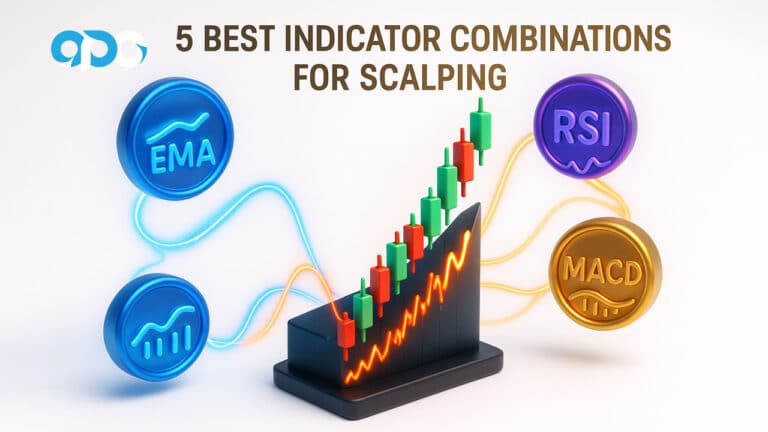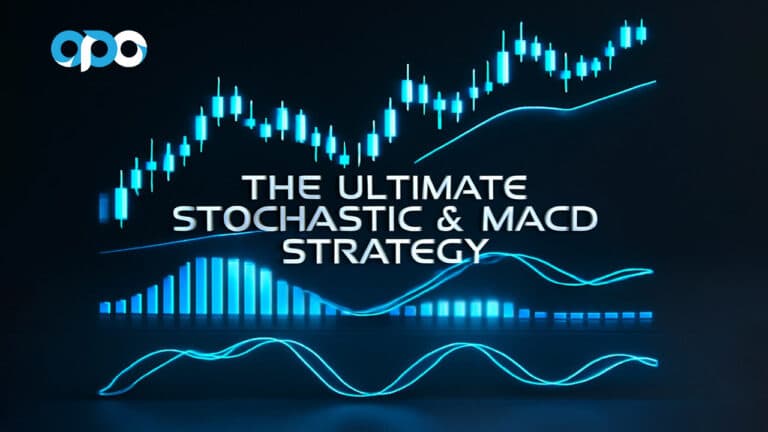The global financial markets offer a diverse range of trading opportunities, with the forex market ranking as one of the most popular. For investors looking to optimize their portfolios, understanding the distinctions between the forex market and other financial markets, such as stocks, bonds, and commodities, is essential. This article explores these markets, comparing their unique characteristics, trading hours, volatility, and investment strategies, and emphasizes the role of a trusted forex broker in navigating these opportunities.
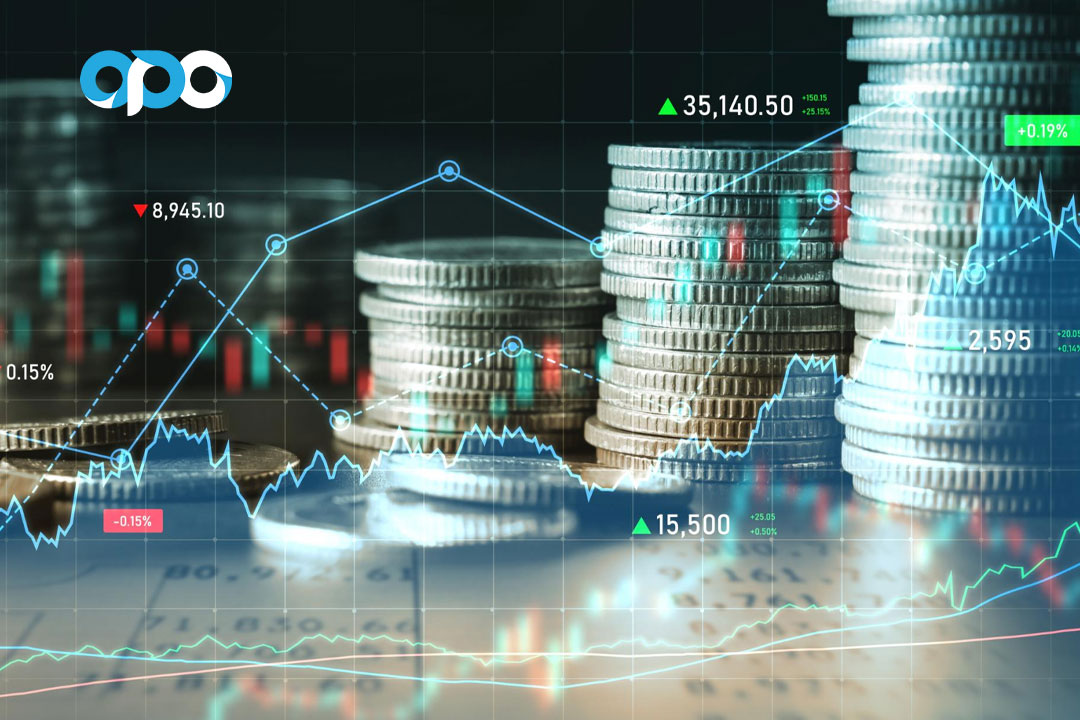
Understanding the Forex Market
What is the Forex Market?
The forex market, or foreign exchange market, is a global decentralized market for trading currencies. It is the largest financial market in the world, with a daily trading volume exceeding $6 trillion. This market is open 24 hours a day, five days a week, due to its worldwide reach and the time zone overlap of major financial centers.

History and Evolution of the Forex Market
The modern forex market has evolved significantly over the past few decades. Initially, the forex market was primarily the domain of large financial institutions, central banks, and wealthy individuals. The Bretton Woods Agreement in 1944 established fixed exchange rates for major currencies, but this system collapsed in the early 1970s, leading to the development of the modern, floating exchange rate system. Technological advancements, particularly the advent of the internet, have democratized forex trading, making it accessible to individual retail traders.
Forex Market Sessions
The forex market operates through a series of overlapping sessions based in key financial centers: Sydney, Tokyo, London, and New York. Each session has unique characteristics and peak trading times:
- Sydney Session: Opens at 10 PM GMT. Though it’s the smallest and quietest session, it sets the tone for the day.
- Tokyo Session: Opens at midnight GMT, seeing more action and often aligning with economic news from Japan and other parts of Asia.
- London Session: Opens at 8 AM GMT, the largest session by trading volume. This session overlaps with both the Tokyo and New York sessions, leading to significant market movements.
- New York Session: Opens at 1 PM GMT, ending the trading day with high activity, especially when it overlaps with the London session.
Detailed Analysis of Each Forex Market Session
- Sydney Session: Although smaller in volume, the Sydney session’s opening marks the start of the global trading day. It’s characterized by lower volatility and liquidity. Traders in this session often set the stage for the Asian market by initiating trades that will be picked up in the Tokyo session.
- Tokyo Session: The Tokyo session sees increased activity, particularly in the JPY pairs. Economic news releases from Japan, China, and other parts of Asia can cause significant movements. The session also overlaps with the Sydney session, which can lead to some early volatility.
- London Session: Known as the most active session, the London session benefits from its overlap with both the Tokyo and New York sessions. This results in higher liquidity and increased volatility, making it a prime time for trading. Major European economic news releases often impact this session.
- New York Session: The New York session is notable for its overlap with the London session, which creates one of the most volatile periods of the trading day. Economic news from the U.S., such as non-farm payrolls, GDP, and interest rate decisions, can cause significant market movements.
Key Players in the Forex Market
Several key players drive the forex market, including:
- Central Banks: Influence currency prices through monetary policy and interventions.
- Commercial Banks: Major players in forex transactions, providing liquidity to the market.
- Corporations: Engage in forex trading to hedge against currency risk in international business operations.
- Retail Traders: Individuals who trade currencies for profit or hedging purposes.
- Hedge Funds and Investment Managers: Large-scale investors who trade forex as part of diversified portfolios.
Roles and Impacts of Major Forex Market Players
- Central Banks: Central banks, such as the Federal Reserve (Fed), European Central Bank (ECB), and Bank of Japan (BOJ), play a critical role in the forex market. Their policies on interest rates, inflation, and economic growth can lead to significant currency value fluctuations. For example, a central bank’s decision to increase interest rates can attract foreign investment, leading to currency appreciation.
- Commercial Banks: Commercial banks engage in forex transactions on behalf of their clients and for their own accounts. They provide liquidity and facilitate the execution of large orders, which can impact currency prices.
- Corporations: Multinational corporations conduct forex transactions to hedge against currency risk in their global operations. For instance, a U.S.-based company operating in Europe may engage in forex trading to protect against fluctuations in the euro-dollar exchange rate.
- Retail Traders: Retail traders, often using online trading platforms, participate in the forex market by speculating on currency movements. Their impact on the market is smaller compared to institutional players, but their collective actions can still influence market dynamics.
- Hedge Funds and Investment Managers: These entities engage in forex trading as part of diversified investment strategies. Hedge funds, in particular, may employ sophisticated trading strategies and large amounts of capital, leading to significant market movements.
Forex Market Instruments
The forex market offers a range of instruments for trading:
- Spot Forex: The most straightforward type of forex trading, involving the physical exchange of currency pairs.
- Forex Forwards: Customized contracts between two parties to exchange currencies at a future date at a predetermined rate.
- Forex Futures: Standardized contracts traded on exchanges to buy or sell currency at a future date.
- Forex Options: Provide the right, but not the obligation, to exchange currency at a set price on a future date.
In-Depth Look at Forex Market Instruments
- Spot Forex: Spot forex transactions are settled “on the spot” and involve the immediate exchange of currency pairs at the current market rate. This type of trading is popular among retail traders due to its simplicity and immediate execution.
- Forex Forwards: Forward contracts are tailored agreements between two parties to exchange currencies at a specific future date and rate. These contracts are not standardized and are typically used by corporations and financial institutions to hedge against future currency risk.
- Forex Futures: Unlike forwards, forex futures are standardized contracts traded on organized exchanges. They obligate the buyer to purchase, and the seller to sell, a currency pair at a predetermined future date and price. Futures are used for both hedging and speculative purposes.
- Forex Options: Options provide traders with the right, but not the obligation, to exchange a currency pair at a specified price before a certain date. This flexibility makes options a valuable tool for hedging and speculative strategies.
Read More: Forex vs Cryptocurrency trading
Comparison with the Stock Market
Market Structure
The stock market consists of exchanges where shares of publicly traded companies are bought and sold. Major stock exchanges include the New York Stock Exchange (NYSE), NASDAQ, and the London Stock Exchange (LSE). Unlike the forex market, which operates globally and continuously, stock markets have fixed trading hours and are influenced by the performance of individual companies and broader economic indicators.

Trading Hours
Stock markets operate within specific hours of their respective time zones:
- NYSE and NASDAQ: Open from 9:30 AM to 4 PM EST.
- LSE: Open from 8 AM to 4:30 PM GMT.
Analysis of Stock Market Trading Hours
Stock market trading hours are designed to coincide with the business hours of the region in which the exchange is located. This alignment allows for the maximum participation of local investors and the dissemination of relevant economic and corporate news during trading hours. The fixed trading hours also create distinct periods of activity and inactivity, influencing market dynamics and volatility.
Volatility and Liquidity
While both markets exhibit volatility, the forex market is typically more liquid due to its larger trading volume and continuous operation. Stock market volatility often spikes with company-specific news, earnings reports, and economic data releases.
Detailed Examination of Market Volatility and Liquidity
- Forex Market: Forex market volatility is driven by macroeconomic factors such as interest rates, economic indicators, and geopolitical events. The high liquidity in the forex market ensures that traders can execute large orders with minimal price impact, reducing slippage and transaction costs.
- Stock Market: Stock market volatility is influenced by company-specific events like earnings reports, mergers, and management changes, as well as broader economic and political factors. Liquidity varies significantly between stocks, with large-cap stocks generally being more liquid than small-cap stocks.
Investment Strategies
- Forex Market: Strategies include day trading, swing trading, and long-term position trading, often based on technical analysis and economic news.
- Stock Market: Investors use strategies like value investing, growth investing, and dividend investing, often relying on fundamental analysis.
Examples of Forex Trading Strategies
- Day Trading: Involves executing multiple trades within a single day, aiming to profit from short-term price movements. Traders often use technical analysis and leverage to maximize gains.
- Swing Trading: Focuses on capturing price swings over several days or weeks. Swing traders combine technical and fundamental analysis to identify trading opportunities.
- Position Trading: Involves holding positions for months or even years, based on long-term economic trends and fundamental analysis. Position traders seek to profit from significant shifts in currency values.
Examples of Stock Market Investment Strategies
- Value Investing: Involves selecting stocks that are undervalued based on fundamental analysis. Value investors seek to buy stocks at a discount and hold them until their true value is recognized by the market.
- Growth Investing: Focuses on companies with high potential for earnings growth. Growth investors are willing to pay a premium for stocks that they believe will deliver substantial returns in the future.
- Dividend Investing: Targets stocks that pay regular dividends. Dividend investors seek to generate a steady income stream while also benefiting from potential capital appreciation.
Risk and Reward
- Forex Market: High risk and potential reward due to leverage and volatility.
- Stock Market: Moderate risk with potential for high returns, influenced by company performance.
Comparative Risk and Reward Analysis
- Forex Market: The use of leverage amplifies both potential gains and losses, making forex trading inherently high-risk. However, the high liquidity and continuous trading opportunities can offer significant rewards for skilled traders.
- Stock Market: While stock market investments carry risks, including market volatility and company-specific issues, they also offer opportunities for substantial returns through capital appreciation and dividends. Diversification across various sectors and asset classes can help mitigate risks.
Case Study: The Impact of Earnings Reports on Stock Prices
Earnings reports provide critical information about a company’s financial health and performance. Positive earnings surprises can lead to significant stock price increases, while negative surprises can result in sharp declines. For example, when Apple Inc. releases its quarterly earnings, the results can lead to substantial market movements not only in Apple’s stock but also in the broader tech sector.
Regulatory Environment
The stock market is heavily regulated to ensure transparency and protect investors. In the United States, the Securities and Exchange Commission (SEC) oversees the stock market, enforcing rules against insider trading, fraud, and market manipulation.
Overview of Stock Market Regulations
- Disclosure Requirements: Publicly traded companies must regularly disclose financial information, ensuring that investors have access to relevant data for making informed decisions.
- Insider Trading Rules: Regulations prohibit corporate insiders from trading based on non-public, material information. Violations can result in significant penalties and legal consequences.
- Market Manipulation Prevention: Authorities monitor trading activities to detect and prevent practices like pump-and-dump schemes, where the price of a stock is artificially inflated before being sold off.
Comparison with the Bond Market
Market Structure
The bond market involves the issuance and trading of debt securities. Governments, municipalities, and corporations issue bonds to raise capital. Bonds are traded over-the-counter (OTC) rather than on centralized exchanges, making the market less transparent compared to the stock and forex markets.
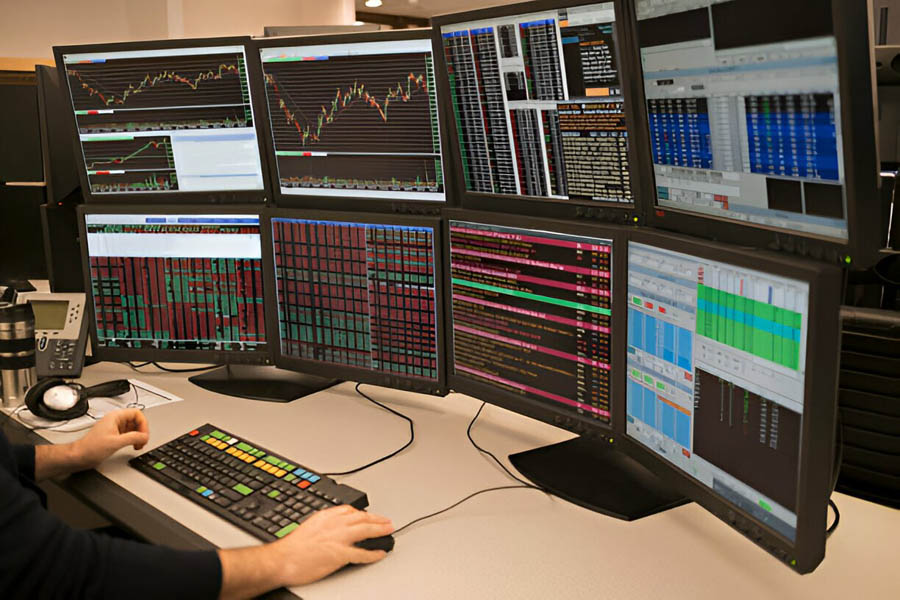
Types of Bonds
- Government Bonds: Issued by national governments, considered low-risk.
- Municipal Bonds: Issued by local governments, often tax-exempt.
- Corporate Bonds: Issued by companies, with higher yields and risk.
Trading Hours
Bond market trading hours vary by region but typically align with the local stock markets. For example, U.S. bond trading occurs from 8 AM to 5 PM EST.
Analysis of Bond Market Trading Hours
Bond market trading hours are designed to align with the business hours of major financial centers, facilitating participation by institutional investors, governments, and corporations. This alignment ensures the availability of liquidity and timely execution of trades.
Volatility and Liquidity
The bond market is generally less volatile than the forex and stock markets. However, liquidity can vary significantly between different types of bonds, with government bonds typically being more liquid than corporate or municipal bonds.
Detailed Examination of Bond Market Volatility and Liquidity
- Volatility: Bond market volatility is influenced by changes in interest rates, credit ratings, and economic conditions. Government bonds are generally less volatile due to their lower risk, while corporate bonds can exhibit higher volatility based on the issuer’s creditworthiness.
- Liquidity: Government bonds, particularly those issued by stable and developed countries, are highly liquid due to their low risk and high demand. Corporate and municipal bonds may have lower liquidity, making it more challenging to buy or sell large quantities without impacting prices.
Investment Strategies
- Bond Market: Strategies include laddering, barbells, and bullet strategies to manage interest rate risk and maximize returns.
- Comparison with Forex Market: Forex trading strategies are more dynamic and often short-term, focusing on capitalizing on market volatility.
Examples of Bond Market Investment Strategies
- Laddering: Involves purchasing bonds with staggered maturities to reduce interest rate risk and ensure a steady stream of income. As bonds mature, the proceeds are reinvested into new bonds.
- Barbell Strategy: Combines short-term and long-term bonds to balance the benefits of both. Short-term bonds provide liquidity, while long-term bonds offer higher yields.
- Bullet Strategy: Involves purchasing bonds that mature around the same time, aligning with a specific investment goal or future cash need. This strategy is useful for funding planned expenses, such as retirement.
Risk and Reward
- Bond Market: Lower risk and reward compared to stocks and forex, focusing on income and capital preservation.
- Comparison with Forex Market: Forex trading involves higher risk and potential reward due to leverage and market volatility.
Comparative Risk and Reward Analysis
- Bond Market: Bonds offer predictable income through interest payments and principal repayment at maturity. The lower risk associated with government bonds makes them attractive for conservative investors. However, corporate bonds carry higher risk due to potential default by the issuer.
- Forex Market: Forex trading’s high leverage and continuous market movements present opportunities for significant profits, but also substantial losses. Successful forex trading requires effective risk management and a deep understanding of market dynamics.
Case Study: The Role of Bonds in a Diversified Portfolio
In a diversified investment portfolio, bonds play a crucial role in providing stability and income. For instance, during the 2008 financial crisis, government bonds performed well as investors sought safe-haven assets, offsetting losses in equities. A balanced portfolio with a mix of stocks, bonds, and other assets can mitigate risk and enhance returns over the long term.
Regulatory Environment
The bond market is regulated to protect investors and ensure transparency. In the U.S., the SEC oversees the bond market, with additional regulations from the Municipal Securities Rulemaking Board (MSRB) for municipal bonds.
Overview of Bond Market Regulations
- Issuer Disclosure: Bond issuers must provide detailed information about the terms, risks, and financial condition of the issuer. This disclosure helps investors assess the risk associated with the bond.
- Credit Ratings: Independent credit rating agencies, such as Moody’s, S&P, and Fitch, evaluate the creditworthiness of bond issuers. These ratings guide investors in assessing default risk.
- Market Conduct: Regulations ensure fair trading practices and prevent market manipulation. Dealers and brokers must adhere to standards of conduct, ensuring transparency and protecting investor interests.
Comparison with the Commodities Market
Market Structure
The commodities market involves trading raw materials and primary agricultural products. Commodities are traded on exchanges like the Chicago Mercantile Exchange (CME) and the New York Mercantile Exchange (NYMEX). The market is divided into two main categories: hard commodities (e.g., gold, oil) and soft commodities (e.g., wheat, coffee).

Trading Hours
Commodities trading hours vary by exchange and commodity. For example, CME trading hours for agricultural products typically run from 8:30 AM to 1:20 PM CST, while NYMEX trading for energy products runs from 6 PM to 5 PM EST the following day.
Analysis of Commodities Market Trading Hours
Commodities trading hours are tailored to the specific needs of different commodities, reflecting their global production and consumption patterns. For instance, trading hours for agricultural products align with farming cycles and market demand, while energy product trading hours accommodate global oil consumption patterns.
Volatility and Liquidity
The commodities market can be highly volatile, influenced by supply and demand dynamics, geopolitical events, and environmental factors. Liquidity varies by commodity, with major commodities like gold and oil being more liquid than less-traded agricultural products.
Detailed Examination of Commodities Market Volatility and Liquidity
- Volatility: Commodities prices can experience sharp fluctuations due to factors like weather conditions, geopolitical tensions, and changes in global demand. For example, hurricanes affecting oil production can lead to significant price spikes.
- Liquidity: Major commodities such as gold, oil, and wheat are highly liquid, allowing for large transactions with minimal price impact. Less commonly traded commodities may have lower liquidity, leading to higher transaction costs and price volatility.
Investment Strategies
- Commodities Market: Strategies include futures trading, options trading, and investing in commodity-related stocks or ETFs.
- Comparison with Forex Market: Both markets require an understanding of global economic factors, but commodities trading often focuses on specific supply and demand dynamics.
Examples of Commodities Market Investment Strategies
- Futures Trading: Involves buying or selling commodity futures contracts, which obligate the trader to purchase or sell a commodity at a predetermined price on a future date. Futures trading is commonly used for hedging and speculation.
- Options Trading: Provides the right, but not the obligation, to buy or sell a commodity at a specified price before a certain date. Options are used for hedging against price fluctuations and leveraging investment positions.
- Commodity ETFs: Exchange-traded funds (ETFs) that track the performance of specific commodities or commodity indices. ETFs offer a way to invest in commodities without directly trading futures contracts.
Risk and Reward
- Commodities Market: High risk and reward, influenced by external factors like weather and geopolitical events.
- Comparison with Forex Market: Both markets can be highly volatile, but forex trading is generally more accessible to retail traders.
Comparative Risk and Reward Analysis
- Commodities Market: The commodities market’s risk is driven by external factors such as natural disasters, political instability, and changes in global demand. These factors can lead to substantial price swings, offering high reward potential for traders who accurately predict market movements.
- Forex Market: Forex trading involves similar levels of risk and reward, with market volatility influenced by economic indicators, central bank policies, and geopolitical events. The continuous nature of forex trading provides numerous opportunities for profit, but also requires effective risk management.
Case Study: The Impact of Geopolitical Events on Oil Prices
Geopolitical events, such as conflicts in oil-producing regions, can have a significant impact on oil prices. For example, the 2020 tensions between the United States and Iran led to a spike in oil prices due to fears of supply disruptions. Traders who anticipated this development were able to profit from the resulting price movements.
Regulatory Environment
The commodities market is regulated to ensure fair trading practices and market stability. In the U.S., the Commodity Futures Trading Commission (CFTC) oversees commodities trading, enforcing rules to prevent market manipulation and protect investors.
Overview of Commodities Market Regulations
- Market Oversight: The CFTC regulates commodity futures and options markets, ensuring transparency and fair trading practices. It monitors trading activities to detect and prevent fraudulent and manipulative practices.
- Position Limits: Regulations impose limits on the size of positions that traders can hold in commodity futures contracts, preventing excessive speculation and ensuring market stability.
- Reporting Requirements: Traders and market participants must regularly report their trading activities, providing data that helps regulators monitor market trends and detect potential issues.
Read MORE: Understanding Copy Trading on Opofinance
Comparison with the Cryptocurrency Market
Market Structure
The cryptocurrency market involves trading digital or virtual currencies that use cryptography for security. Cryptocurrencies are traded on various online platforms, including centralized exchanges like Binance and Coinbase, as well as decentralized exchanges such as Uniswap. Unlike traditional currencies or commodities, cryptocurrencies are not tied to physical assets or national governments.
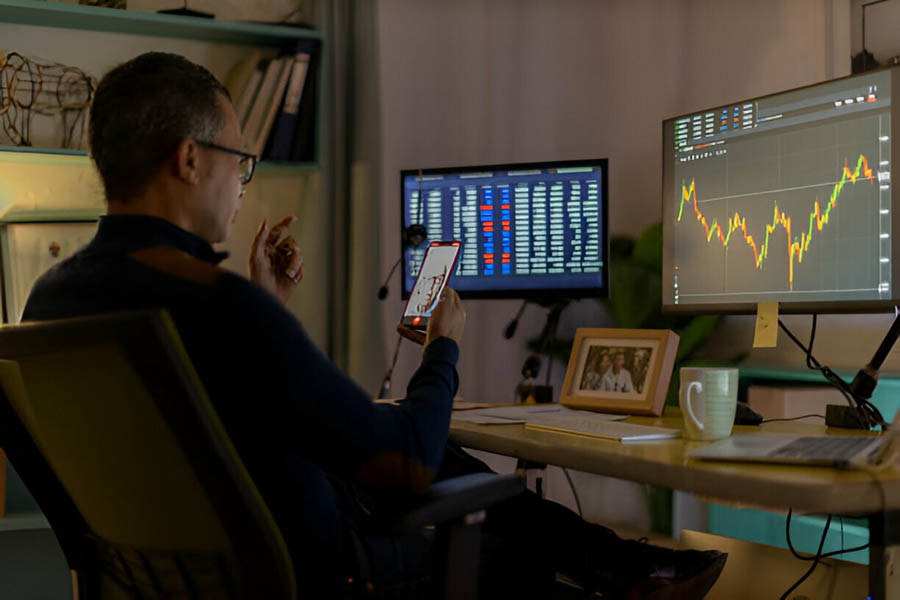
Trading Hours
Cryptocurrency trading is available 24/7, without any centralized market hours, because trading platforms operate globally and are accessible at any time. This continuous availability is in stark contrast to forex markets, which, while extensive, do close for brief periods on weekends.
Analysis of Cryptocurrency Market Trading Hours
The 24/7 nature of cryptocurrency trading reflects its decentralized, global, and digital characteristics. It allows traders to react immediately to news and events, regardless of time zones. This can result in more dynamic and rapid market movements compared to forex markets, which are active 24 hours a day during weekdays but close on weekends.
Volatility and Liquidity
The cryptocurrency market is known for its high volatility, influenced by market sentiment, technological developments, regulatory news, and macroeconomic factors. Liquidity varies significantly among different cryptocurrencies, with major ones like Bitcoin and Ethereum being highly liquid, while smaller altcoins may have lower liquidity.
Detailed Examination of Cryptocurrency Market Volatility and Liquidity
- Volatility: Cryptocurrency prices can experience extreme fluctuations within short periods, driven by factors such as regulatory news, technological advancements, and market speculation. For example, a regulatory announcement can cause significant price swings in Bitcoin.
- Liquidity: Major cryptocurrencies like Bitcoin and Ethereum are highly liquid, facilitating large transactions with minimal price impact. However, less well-known cryptocurrencies can suffer from lower liquidity, resulting in higher transaction costs and greater price volatility.
Investment Strategies
- Cryptocurrency Market: Investment strategies include buying and holding, trading on exchanges, participating in initial coin offerings (ICOs), and investing in cryptocurrency-related stocks or funds.
- Comparison with Forex Market: Both markets require an understanding of technical analysis and market sentiment, but cryptocurrency trading often involves a higher degree of speculative risk due to the nascent and rapidly evolving nature of the market.
Examples of Cryptocurrency Market Investment Strategies
- Buy and Hold (HODL): Investors purchase cryptocurrencies and hold them for an extended period, betting on long-term appreciation. This strategy is popular among those who believe in the future growth of cryptocurrencies.
- Day Trading: Involves actively buying and selling cryptocurrencies within the same day to capitalize on short-term price movements. This requires significant market knowledge and real-time analysis.
- Staking: Investors can earn rewards by holding and “staking” their cryptocurrencies in certain blockchain networks, contributing to network security and consensus.
- Participation in ICOs: Involves investing in new cryptocurrency projects during their initial coin offerings, hoping for high returns if the project succeeds.
Risk and Reward
- Cryptocurrency Market: High risk and reward, driven by market sentiment, regulatory developments, and technological changes.
- Comparison with Forex Market: Both markets exhibit high volatility, but the cryptocurrency market is often considered more speculative due to its nascent state and the potential for rapid, large-scale price movements.
Comparative Risk and Reward Analysis
- Cryptocurrency Market: Risks include regulatory uncertainty, cybersecurity threats, and extreme volatility. The potential rewards are significant for those who can accurately predict market movements, as cryptocurrencies can appreciate rapidly.
- Forex Market: While also volatile, forex trading is generally less speculative and more stable, influenced by economic indicators, central bank policies, and geopolitical events. Forex markets are considered more mature and established compared to the emerging cryptocurrency market.
Case Study: The Impact of Regulatory News on Bitcoin Prices
In 2021, China’s crackdown on cryptocurrency mining and trading caused a significant drop in Bitcoin prices. Conversely, announcements of institutional adoption and investment in cryptocurrencies have led to substantial price increases. Traders who could anticipate these regulatory moves were able to profit from the ensuing price volatility.
Regulatory Environment
The cryptocurrency market is less regulated compared to traditional financial markets, but this is changing as governments seek to implement frameworks to ensure investor protection and market stability. Regulatory bodies around the world are increasingly focusing on cryptocurrency exchanges and Initial Coin Offerings (ICOs).
Overview of Cryptocurrency Market Regulations
- Market Oversight: Regulatory approaches vary by country, with some nations imposing strict regulations while others adopt a more lenient stance. In the U.S., the Securities and Exchange Commission (SEC) and the Commodity Futures Trading Commission (CFTC) play key roles in regulating certain aspects of the cryptocurrency market.
- Anti-Money Laundering (AML) and Know Your Customer (KYC) Requirements: Cryptocurrency exchanges are increasingly required to implement AML and KYC procedures to prevent illegal activities and enhance transparency.
- Securities Regulations: Some cryptocurrencies and ICOs are classified as securities and must comply with existing securities laws, ensuring disclosure and investor protection.
Case Study: Bitcoin’s Meteoric Rise
Bitcoin, the first and most well-known cryptocurrency, has seen a meteoric rise since its inception in 2009. From being valued at less than a dollar, Bitcoin reached an all-time high of over $60,000 in 2021. This dramatic increase has made early adopters significant returns and spurred widespread interest in cryptocurrencies as an asset class.
Comparative Analysis
Market Accessibility
- Forex Market: Highly accessible with low initial capital requirements. Platforms like MetaTrader 4 and 5 provide easy access to individual traders.
- Stock Market: Requires a brokerage account, with varying levels of minimum investment.
- Bond Market: Typically requires more substantial capital and knowledge of fixed-income instruments.
- Commodities Market: Access through futures contracts, ETFs, or commodity stocks, often requiring specialized knowledge.
- Cryptocurrency Market: Highly accessible, with numerous online platforms allowing trading with low initial investments. Platforms like Binance and Coinbase provide easy entry for individual traders.
In-Depth Look at Market Accessibility
- Forex Market: The forex market’s accessibility is enhanced by the availability of online trading platforms, low transaction costs, and the ability to trade with small initial investments. This accessibility attracts a diverse range of participants, from retail traders to institutional investors.
- Stock Market: Stock market accessibility varies depending on the brokerage firm and the investor’s financial resources. Some brokerages offer low-cost or commission-free trading, making it easier for retail investors to participate.
- Bond Market: The bond market’s higher capital requirements and complexity can be a barrier for individual investors. However, bond funds and ETFs provide accessible alternatives for investing in bonds.
- Commodities Market: Commodities trading often requires specialized knowledge and significant capital, especially for futures trading. However, commodity ETFs and stocks offer more accessible entry points for individual investors.
- Cryptocurrency Market: The cryptocurrency market is highly accessible, with numerous exchanges offering 24/7 trading and low entry barriers. This attracts a wide range of participants, from individual retail traders to institutional investors.
Regulatory Environment
- Forex Market: Decentralized and less regulated, with oversight by bodies like the Commodity Futures Trading Commission (CFTC) and the Financial Conduct Authority (FCA).
- Stock Market: Heavily regulated by entities like the Securities and Exchange Commission (SEC) and equivalent organizations worldwide.
- Bond Market: Regulated by various national and international bodies, depending on the issuer and type of bond.
- Commodities Market: Regulated by commodity-specific bodies and exchanges, like the CFTC for futures trading.
- Cryptocurrency Market: Less regulated compared to traditional financial markets, but this is changing. Regulatory bodies such as the SEC and the CFTC are increasingly involved, focusing on exchanges and initial coin offerings (ICOs).
Overview of Regulatory Environments
- Forex Market: The forex market’s decentralized nature means that regulation varies by country. Key regulatory bodies include the CFTC in the U.S., the FCA in the U.K., and the Australian Securities and Investments Commission (ASIC). These organizations enforce rules to protect traders and ensure market integrity.
- Stock Market: Stock markets are subject to strict regulations to protect investors and ensure transparency. The SEC in the U.S. and the Financial Conduct Authority (FCA) in the U.K. are examples of regulatory bodies that oversee stock market activities.
- Bond Market: Bond market regulations focus on issuer disclosure, credit ratings, and fair trading practices. The SEC and the MSRB are key regulatory bodies in the U.S., while international markets are overseen by respective national authorities.
- Commodities Market: The CFTC regulates U.S. commodities markets, ensuring transparency and preventing market manipulation. International commodities exchanges are regulated by respective national authorities, ensuring adherence to trading standards and protecting market participants.
- Cryptocurrency Market: Regulation is evolving, with a focus on combating fraud, money laundering, and ensuring market integrity. Regulatory bodies such as the SEC in the U.S. and the Financial Conduct Authority (FCA) in the U.K. are increasing their oversight of the cryptocurrency market.
Risk and Reward
- Forex Market: High risk and potential reward due to leverage and volatility.
- Stock Market: Moderate risk with potential for high returns, influenced by company performance.
- Bond Market: Lower risk and reward, focused on income and capital preservation.
- Commodities Market: High risk and reward, influenced by external factors like weather and geopolitical events.
- Cryptocurrency Market: Very high risk and reward, driven by market sentiment, regulatory news, and technological changes.
Comparative Risk and Reward Analysis
- Forex Market: Forex trading’s high leverage and 24-hour operation create opportunities for significant gains, but also substantial risks. Effective risk management strategies, such as stop-loss orders and position sizing, are essential for successful trading.
- Stock Market: The stock market offers a range of risk and reward profiles, from high-growth stocks to stable dividend payers. Diversification and thorough research can help mitigate risks and enhance returns.
- Bond Market: Bonds provide predictable income and capital preservation, making them suitable for conservative investors. The risk varies by bond type, with government bonds being the safest and corporate bonds carrying higher risk.
- Commodities Market: Commodities trading is influenced by factors beyond market participants’ control, such as weather and geopolitical events. This volatility can lead to high rewards but also significant risks. Diversifying across different commodities can help manage risk.
- Cryptocurrency Market: The cryptocurrency market’s extreme volatility can lead to significant profits but also substantial losses. Risk management strategies, including diversification, position sizing, and staying informed about regulatory changes, are crucial for navigating this market.
Case Study: Risk Management Strategies in the Forex Market
In volatile market conditions, such as during economic crises or geopolitical tensions, forex traders often implement various risk management strategies to protect their capital and optimize their trading performance. These strategies may include:
- Diversification: Spreading investments across different currency pairs to mitigate risk exposure to any single currency.
- Use of Stop-Loss Orders: Setting predefined exit points to limit potential losses and protect trading capital.
- Hedging: Employing hedging strategies, such as using correlated currency pairs or derivatives like options, to offset potential losses in one position with gains in another.
- Position Sizing: Calculating the appropriate position size based on risk tolerance and market conditions to manage leverage effectively.
Examples of Effective Risk Management in Forex Trading
- Diversification: A trader diversifies their portfolio by trading multiple currency pairs, such as EUR/USD, GBP/USD, and USD/JPY. This strategy reduces the impact of adverse movements in any single pair.
- Stop-Loss Orders: A trader places a stop-loss order at a predetermined level to automatically close a losing position, limiting potential losses. For instance, if trading EUR/USD at 1.2000, a stop-loss order at 1.1950 ensures the trade is closed if the price falls to that level.
- Hedging: A trader hedges their position by taking offsetting trades in correlated currency pairs. For example, if they are long EUR/USD, they might take a short position in GBP/USD to protect against adverse movements in the euro.
- Position Sizing: A trader calculates the appropriate position size based on their account balance and risk tolerance. For instance, if willing to risk 2% of their $10,000 account on a trade, they limit their position size to ensure the maximum loss does not exceed $200.
Comparative Investment Objectives
Each market caters to different investment objectives:
- Forex Market: Primarily suited for investors seeking opportunities in currency fluctuations, leveraging global economic trends and geopolitical events.
- Stock Market: Appeals to investors looking for capital appreciation through ownership of company shares, dividend income, and long-term growth prospects.
- Bond Market: Attracts investors seeking stable income streams and capital preservation through fixed-income securities issued by governments and corporations.
- Commodities Market: Provides avenues for investors to hedge against inflation, diversify portfolios, and speculate on price movements driven by supply and demand dynamics.
- Cryptocurrency Market: Attracts investors interested in high-risk, high-reward opportunities driven by technological innovation, market sentiment, and regulatory developments.
Detailed Examination of Investment Objectives
- Forex Market: Forex traders aim to profit from changes in currency values due to economic news, interest rate changes, and geopolitical events. Strategies range from short-term speculation to long-term investments based on macroeconomic trends.
- Stock Market: Stock investors seek to benefit from company growth, dividends, and overall market appreciation. Strategies include buying undervalued stocks, investing in high-growth companies, and seeking stable income through dividend-paying stocks.
- Bond Market: Bond investors focus on earning regular interest payments and preserving capital. Government bonds offer safety and stability, while corporate bonds provide higher yields but with increased risk.
- Commodities Market: Commodities investors aim to capitalize on price movements driven by supply and demand dynamics. Hedging strategies protect against inflation, while speculative trading seeks to profit from short-term price fluctuations.
- Cryptocurrency Market: Cryptocurrency investors look for high growth potential and speculative gains. Long-term investors may focus on the potential of blockchain technology, while short-term traders capitalize on market volatility.
Practical Considerations for Investors
Investors must consider various factors when choosing between these markets:
- Knowledge and Expertise: Each market requires a different level of understanding and expertise. Forex trading demands knowledge of global economics and technical analysis, while stock market investing benefits from company and industry analysis.
- Risk Tolerance: Investors must assess their risk tolerance. The forex market and cryptocurrency market are more suitable for those with a higher risk appetite, while the bond market appeals to conservative investors.
- Investment Horizon: The investment horizon influences market choice. Short-term traders may prefer forex and cryptocurrency markets, while long-term investors might favor stocks and bonds.
- Diversification Needs: Diversifying across different markets can help manage risk and optimize returns. A balanced portfolio might include a mix of stocks, bonds, commodities, forex, and cryptocurrencies.
In-Depth Look at Practical Considerations
- Knowledge and Expertise: Successful forex trading requires understanding currency correlations, economic indicators, and geopolitical influences. Stock market investing benefits from fundamental analysis, including financial statements and industry trends. Bond market participants need to understand interest rate risk, credit ratings, and yield curves. Cryptocurrency trading requires knowledge of blockchain technology, market trends, and regulatory developments.
- Risk Tolerance: High-risk tolerance investors may engage in leveraged forex trading, cryptocurrency trading, or commodities futures. Moderate-risk investors might focus on stocks, balancing growth and income. Low-risk tolerance investors typically prioritize bonds and stable dividend-paying stocks.
- Investment Horizon: Short-term forex and cryptocurrency traders capitalize on daily price movements, while long-term investors hold stocks, bonds, and some cryptocurrencies for extended periods, benefiting from compound growth and income.
- Diversification Needs: A diversified portfolio might include exposure to all markets, balancing high-risk and low-risk assets. For example, combining forex positions with blue-chip stocks, government bonds, and leading cryptocurrencies can provide growth potential and stability.
Comparison Table
| Aspect | Forex Market | Stock Market | Bond Market | Commodities Market | Cryptocurrency Market |
| Market Structure | Decentralized, OTC | Centralized exchanges | Centralized/OTC | Centralized exchanges | Decentralized |
| Trading Hours | 24/5 | Varies by exchange | Varies by region/type | Varies by exchange/product | 24/7 |
| Volatility | High | Medium to high | Low to medium | High | Very high |
| Liquidity | High | High (varies by stock) | Medium to high | Varies by commodity | Varies by cryptocurrency |
| Investment Strategies | Scalping, day trading, swing | Value, growth, dividend, index | Laddering, barbell, duration | Futures, ETFs, physical | HODLing, day trading, staking |
| Risk | High | Medium to high | Low | High | Very high |
| Reward | Significant potential | Capital appreciation, dividends | Predictable income | Significant potential | Significant potential |
| Regulatory Environment | Less regulated, varies by country | Heavily regulated | Heavily regulated | Heavily regulated | Evolving, varies by country |
| Case Study | Impact of central bank policies | Rise of technology stocks | U.S. Treasury bonds as safe havens | Oil price shocks | Bitcoin’s meteoric rise |
Conclusion:
The Forex market, stock market, bond market, commodities market, and cryptocurrency market each offer unique opportunities and challenges for investors. Understanding the characteristics, trading hours, volatility, investment strategies, risk and reward profiles, regulatory environments, and investment objectives of each market is crucial for making informed investment decisions. By considering practical factors such as knowledge, risk tolerance, investment horizon, and diversification needs, investors can choose the market or combination of markets that best aligns with their financial goals and preferences.
What are the main differences between forex trading and stock trading?
Forex trading involves buying and selling currency pairs, while stock trading involves purchasing shares of individual companies. The forex market operates 24/5, whereas stock markets have specific trading hours. Forex trading tends to be more liquid and volatile compared to stocks.
How do forex market sessions affect trading strategies?
Forex market sessions affect trading strategies by determining the most active and liquid times for trading. For example, traders may focus on the London-New York overlap for higher volatility and trading opportunities.
What are the risks associated with trading in the forex market?
The main risks include high leverage, market volatility, and the potential for significant losses. Traders must manage risk through strategies like stop-loss orders and proper position sizing.
How does the bond market compare to the forex market in terms of investment goals?
The bond market is typically used for long-term stability and income through fixed interest payments, whereas the forex market is more suited for short-term gains from currency fluctuations.
What role do geopolitical events play in the commodities market?
Geopolitical events can significantly impact commodity prices by affecting supply and demand. For example, conflicts in oil-producing regions can lead to price spikes in crude oil.
Can beginners trade in the forex market, and what should they consider before starting?
Beginners can trade in the forex market, but they should consider factors like the high risk involved, the need for proper education and trading strategies, and the importance of using demo accounts to practice before investing real money.



